The Best Cafes in Bangkok, the Exciting City That's Quietly Becoming the Craft Coffee Capital of Asia
When Han Wang moved to Bangkok eight years ago, one of the first things he noticed was the coffee.
Unlike the delicate light roasts and well-balanced flat whites Wang learned to appreciate while attending college in Australia, everything seemed “too sweet or bitter to even consider swallowing.” Starbucks had been a major player since opening its first shops in the country in 1998; its robust dark roasts and cloying Frappuccinos were as ubiquitous as the equally strong, sugary iced coffee (a.k.a. oliang) that had long been a staple of Thailand’s shophouses and market stalls.
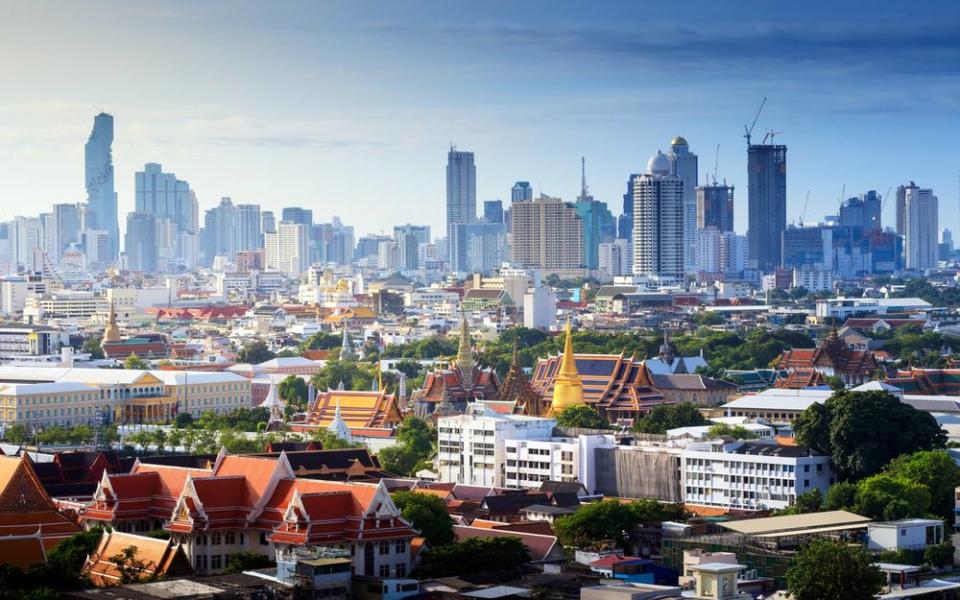
Wang wasn’t about to give up on finding a truly great cup, though. Having recently witnessed the rise of third-wave coffee in Taiwan — Wang did a stint in Taipei before relocating to Bangkok — the Malaysian-born entrepreneur was convinced he could spark a similar movement in one of Southeast Asia’s most progressive cities. So he set his psychology degree aside and launched Phil Coffee Co. in an industrial neighborhood, with the help of his father and two sisters. Wang didn't rush into running a cafe, instead focusing on his roasting techniques and wholesale accounts for the first three years. Eventually, the team set up Phil's flagship shop in Bangkok's fashionable Ekkamai neighborhood.
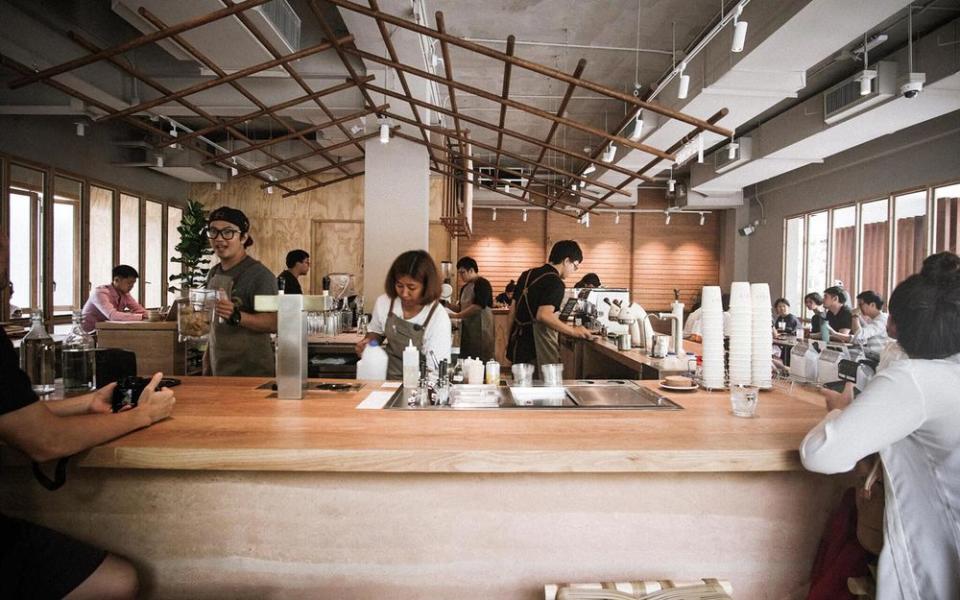
He wasn’t alone. Around the same time, other influential Bangkok outposts like One Ounce For Onion, Rocket Coffeebar, and Casa Lapin began attracting hip locals with elaborate pour-over setups, Western-style small plates, and bottles of cold brew for beating the heat and humidity. One leading figure during these early days was Roots, a heavyweight roaster that also happens to run one of the hottest brunch spots in town, Roast.
"A lot has changed in recent years," says Roots founder Varatt Vichit-Vadakan. "Thailand is probably the only country in the world that has a well-developed consumer market — loads of specialty coffee shops in its big cities — while also being a coffee-producing country."
That's the other welcome development that's driven Bangkok's desire for craft coffee: forward-thinking farms in Northern Thailand, putting the country on a path to becoming a world-renowned single origin region. It’s got a ways to go before it starts exporting the good stuff, however, so local roasteries like Brave Roasters, Gallery Drip, and Factory Coffee are still the best place to sample and score Thai beans that are produced and packaged in-house. "A lot of local players are seeing what they can do to improve the quality," explains Vichit-Vadakan, “and experiment with different flavor profiles. It's quite an exciting time — it won't be long before the world turns its attention to specialty grade Asian coffee."
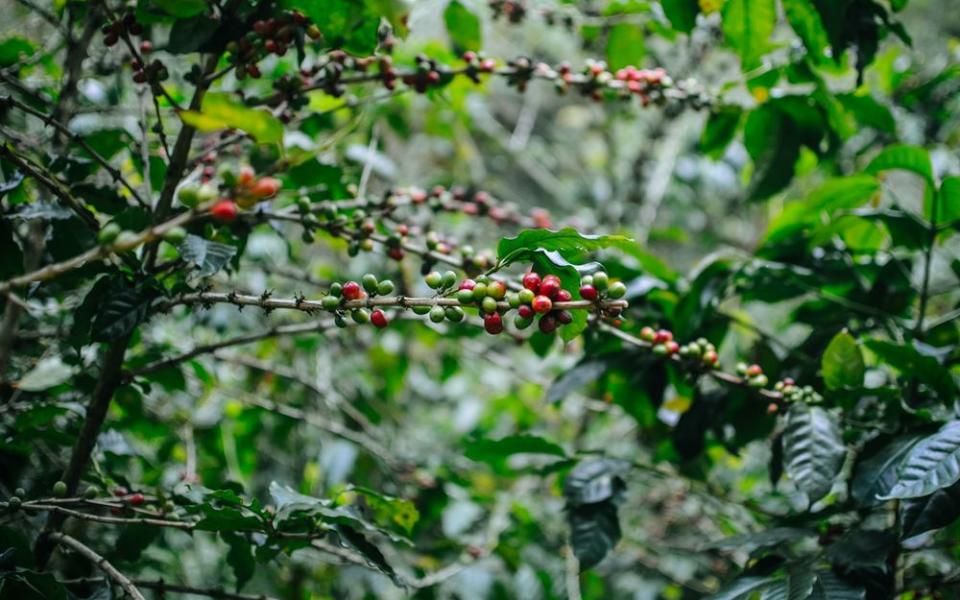
"Our beans from [the village of] Baan Mai Pattana are carefully hand-picked at peak ripeness to maximize their natural sweetness," Wang tells me, when asked about his favorite Thai farms. "And our processing is as simple as it gets, so people can taste coffee in its purest form."
Roast Runner is another Bangkok-based small business determined to bring Thailand on par with coffee producers like Colombia, Ethiopia, and Kenya. Founded by three high-school friends — including one (Waruth Tangsuriyapaisan) who competed in last month's World Cup Tasters Championship — it roasts high quality beans from the lush region around Chiang Mai and Chiang Rai for a devoted cult following and cafes, restaurants, and hotels throughout the city.
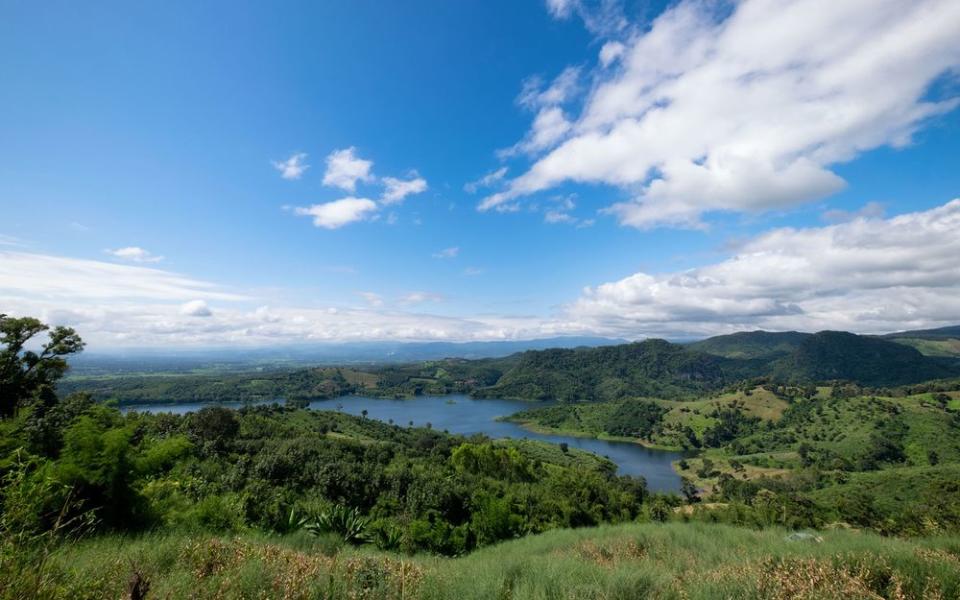
Partner Tanatat Sombutphanich, who designs all of the company’s brightly colored bags himself, says he particularly likes the beans grown near the Laos border by Gem Forest Coffee. "The owner, Kaleb Jordan, is a nice American guy who knows everything about processing,” says Sombutphanich. “Southeast Asian coffee often tastes very similar to Brazil's — nutty and chocolatey, with notes of spices or herbs. But some exceptional coffee, like Kaleb's Java, are more complex and have floral and fruity aromas."
Despite this groundswell of determined startups, coffee-nerd culture is still a few years away from becoming a mainstream commodity. A quick scan of Facebook and Instagram reveals a more stylized market, on par with trend-chasers in Tokyo, L.A., and New York. Just as important as the coffee itself are aesthetically pleasing spaces and photogenic drink specials like lattes cut with salted egg syrup (Eureka), purple sweet potatoes (Roastology), and butterfly pea flowers (Blue Whale). "The camera comes first," as Sombutphanich puts it. "Some customers visit cafes simply because they're good for taking photos, not because they're serious about coffee."
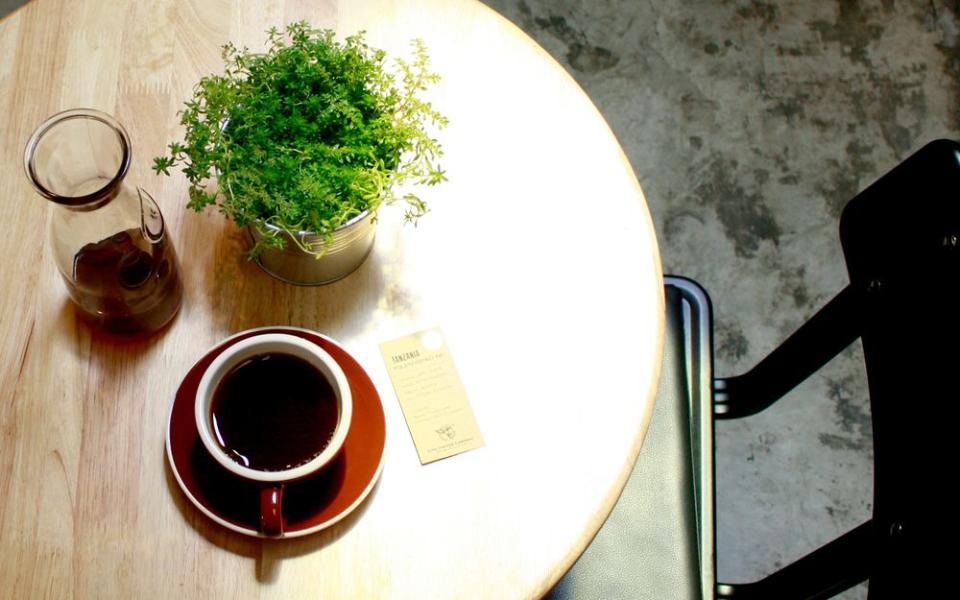
There are still spaces for purists, though, with laid-back spots like Ekkamai's Kaizen Coffee Co — one of Wang's favorites.
"I am not a fan of fancy drinks," he says. "I don't serve them. To me, they're a distraction. Maybe that's why I think highly of Kaizen; they find a good balance between quality coffee and fancy drinks. They made it work for themselves and the customer."
May they never have to make a triple-venti-half-sweet-non-fat-caramel macchiato again.

